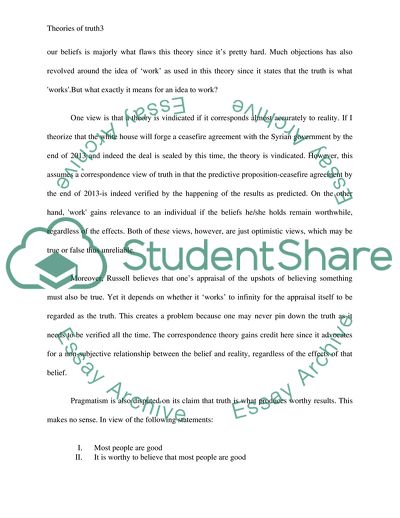Cite this document
(Which Theorie of Truth Is the Most Credible Essay Example | Topics and Well Written Essays - 2000 words, n.d.)
Which Theorie of Truth Is the Most Credible Essay Example | Topics and Well Written Essays - 2000 words. https://studentshare.org/philosophy/1829613-philosophy-of-religion
Which Theorie of Truth Is the Most Credible Essay Example | Topics and Well Written Essays - 2000 words. https://studentshare.org/philosophy/1829613-philosophy-of-religion
(Which Theorie of Truth Is the Most Credible Essay Example | Topics and Well Written Essays - 2000 Words)
Which Theorie of Truth Is the Most Credible Essay Example | Topics and Well Written Essays - 2000 Words. https://studentshare.org/philosophy/1829613-philosophy-of-religion.
Which Theorie of Truth Is the Most Credible Essay Example | Topics and Well Written Essays - 2000 Words. https://studentshare.org/philosophy/1829613-philosophy-of-religion.
“Which Theorie of Truth Is the Most Credible Essay Example | Topics and Well Written Essays - 2000 Words”. https://studentshare.org/philosophy/1829613-philosophy-of-religion.


